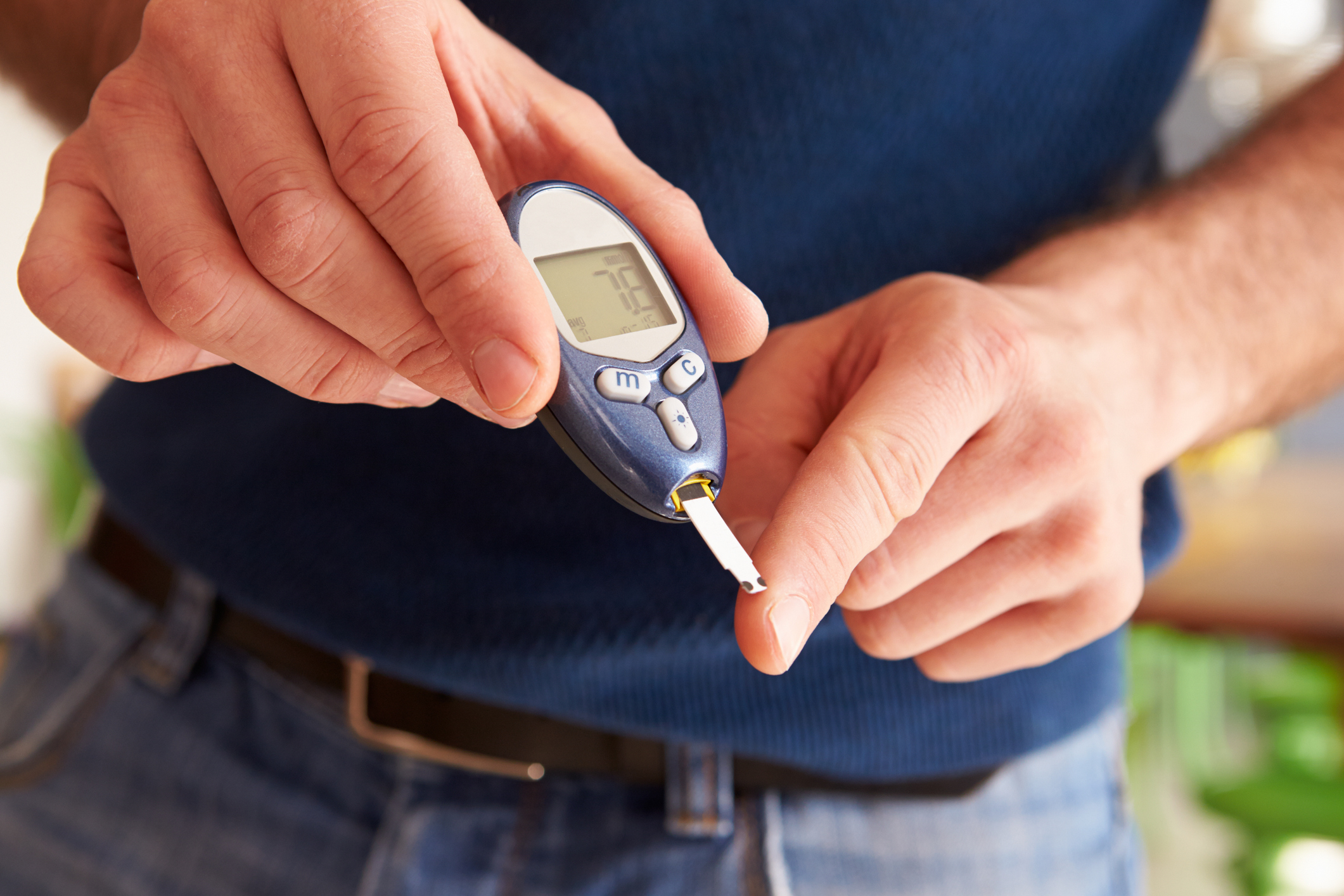Get Easy Health Digest™ in your inbox and don’t miss a thing when you subscribe today. Plus, get the free bonus report, Mother Nature’s Tips, Tricks and Remedies for Cholesterol, Blood Pressure & Blood Sugar as my way of saying welcome to the community!
The blood sugar problems that start after a COVID infection

If there’s anything you can say about Covid-19, it’s that it’s turned out to be a strange disease.
Unlike the flu or pneumonia, it has become abundantly clear that a Covid-19 infection has far-reaching effects…
The virus has now been linked to heart complications and blood clots.
Research has shown that it could cause a serious nervous system disorder triggered by an overactive immune response — Guillain-Barre syndrome.
And studies have found that the virus can even lead to thyroid inflammation with possibly permanent effects on the gland.
You would think all of that would be enough for one virus, but it’s not
Despite it all, it seems that Covid-19 has even more surprises in store for us.
That’s because researchers in Japan have identified how a Covid-19 infection can cause diabetes.
Standing in the way of insulin signaling
Doctors and researchers had already begun to note that people who had suffered a Covid-19 infection could begin to experience disruption of their blood sugar regulation — something that can lead to metabolism problems and even new-onset diabetes.
But it wasn’t clear just how the virus could cause these issues.
However, Japanese researchers had a theory…
“The insulin/IGF signaling pathway is a key pathway in the regulation of energy metabolism and cell survival,” said Jihoon Shin, first author of the study. “Therefore, we suspected that SARS-CoV-2 affects this signaling pathway to cause problems with blood sugar regulation.”
So they set out to test that theory by taking a look at how the genes of patients who were infected. The goal was to see which genes over-expressed and which ones under-expressed compared to those of people who hadn’t been struck by Covid.
And they found their answer…
“The results were striking,” said Iichiro Shimomura, senior author of the study. “Infection with SARS-CoV-2 affected the expression of insulin/IGF signaling pathway components in the lung, liver, adipose tissue, and pancreatic cells. Moreover, these changes were attributed in part to activation of interferon regulatory factor 1 (IRF1).”
Put simply, the virus elevated IRF1, blocking insulin signaling so that blood sugar could spiral out of control.
Interestingly, the researchers also noted that elevated IRF1 is common in older patients, men, people who are obese and patients with diabetes. They say this could explain why these patients are more vulnerable to Covid-19.
Hormones to the rescue
Luckily, the researchers found more than just the answer to why Covid can destroy blood sugar regulation.
They also found a possible solution to the problem in our natural hormones…
“Our findings suggest that SARS-CoV-2 infection impairs insulin/IGF signaling by increasing IRF1 expression, thereby disrupting blood sugar metabolism. Decreasing IRF1 expression by treatment with factors such as dihydrotestosterone and dexamethasone could help mitigate the effects of COVID-19,” says Shin.
Dihydrotestosterone is a converted form of testosterone, and we already know that men with low testosterone levels were hit hard by Covid-19.
If you were infected, or suspect t, it wouldn’t hurt to check in with your doctor so he can make sure your blood sugar levels are where they should be. If you haven’t been infected, be vigilant. It looks like COVID, in some variant or another may be with us for the long term.
Editor’s note: Are you feeling unusually tired? You may think this is normal aging, but the problem could be your master hormone. When it’s not working, your risk of age-related diseases skyrockets. To reset what many call “the trigger for all disease” and live better, longer, click here to discover The Insulin Factor: How to Repair Your Body’s Master Controller and Conquer Chronic Disease!
Sources:
The surprising link between SARS-CoV-2 infection and new-onset diabetes — EurekAlert!














